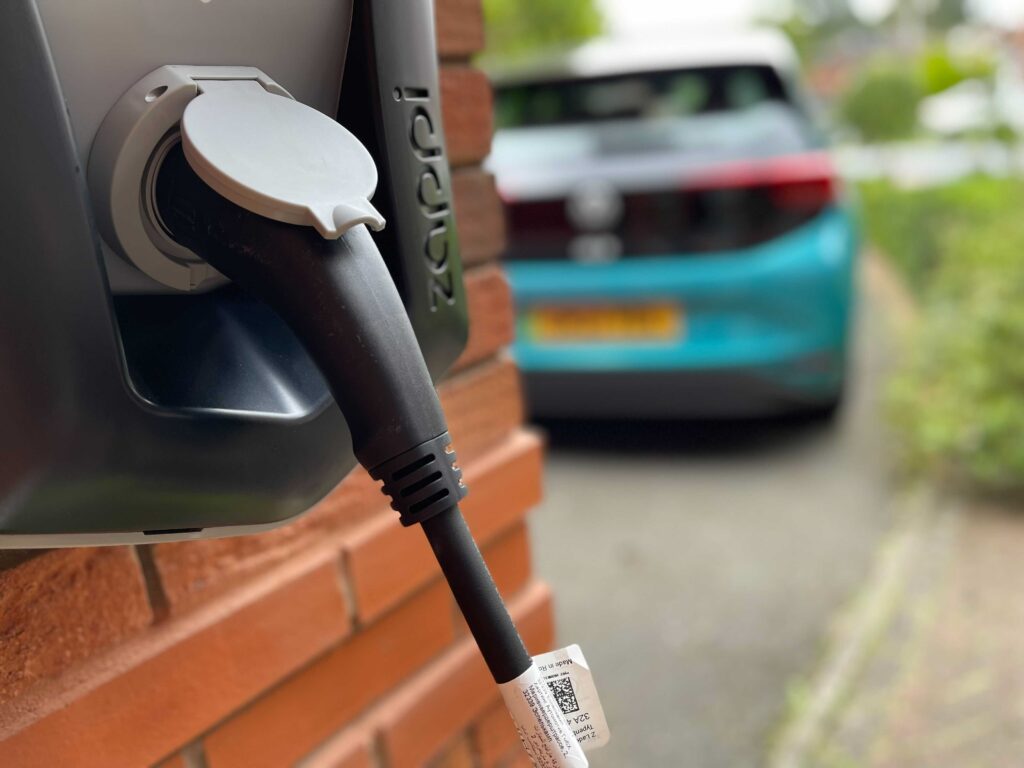Smart charging can reduce the cost of supplying electricity by 26%, the Flexibly-Responsive Energy Delivery (FRED) trial has found.
Run by Evergreen Smart Power, together with Myenergi, GenGame, Energy Systems Catapult, and Swansea University, the trial brought together 250 participants to explore shifting domestic energy usage to support the grid.
The trial – which began in 2019 and included 160 electric vehicle (EV) drivers – found that EV users respond well to incentives, but that there is no single proposition that appeals to all and instead there will likely be a market for several types of smart charging frameworks.
Speaking to Current±, Evergreen Smart Power’s project manager Peter Bullock said “one of the big positives was people really do respond well to the incentives they’re provided with, that was loud and clear throughout the project”.
“Although, we’re going to need half hourly settlement. If you’re not being half-hourly settled, and the market doesn’t know when you are using electricity, there’s not that much you can get out of smart charging. Not many suppliers are doing half-hourly settlement at scale at the moment, so in a world with such low energy supply margins there’s a big opportunity in half-hourly settlement and smart charging.”
Ofgem gave the green light to rolling out half-hourly settlement across the retail electricity market in Britain in April 2021, to enable a more flexible energy system in the country. But this still remains nascent in Britain.
If it could become commonplace, further smart charging and optimisation would be unlocked. Within the trial, modelling predicted that if further incentives for smart charging were brought in – alongside barriers like half-hourly settlement being tackled – direct cost savings could increase to 45%.
FRED identified a number of challenges to the rollout of smart charging and EV-based virtual power plants (VPPs), with the biggest technical barrier being the availability of information concerning a vehicle’s state-of-charge (SoC).
SoC is currently not included in the data exchange protocols for domestic AC charging, meaning that a smart charging provider would need to integrate with the vehicle manufacturer’s servers and programming interfaces to know for certain how full the battery is, and therefore how much flexibility it could provide. To overcome this, changes to regulation would be required.
Evergreen Smart Power’s VPP software was used in tandem with the inbuilt smart charging capabilities of myenergi’s zappi charger to optimise the FRED trial participant’s vehicles, shifting charging to reduce bills and carbon. As part of the trial, the consortium of companies also looked at the potential of playing this VPP into frequency markets.
In addition to reduce energy supply costs for EVs by 26%, the FRED trial found that a further ~18% of saving is possible from flexibility revenues. This equates to £110 per customer of value per year.
But this remains some way off, with regulatory change needed for it to meet its full potential.
“Lots of flexibility markets are opening up to allow ordinary households to participate, but the frequency market isn’t yet ready for the car on your drive.” said Bullock. “The data that is required to prove what you’ve done in a balancing event is excessive for a household EV charger, even though we’ve shown that zappi chargers are capable of providing this important service to the network.”
National Grid ESO has been broadening access to flexibility markets as part of its Wider Access program, which allowed Social Energy to win the first ever fully domestic weekly Firm Frequency Response (FFR) contract in September 2020.
Based on the FRED trial, 100 vehicles aggregated together provided “reliable charging patterns with limited day-to-day variability, suitable for flexibility services” said Bullock. The consortium estimated that 2,000 cars are required to reliably deliver 1MW of flexibility.
“We did do some work with an app trial at the end of the project, with more like 10 vehicles in a portfolio,” he added. “And that was definitely too few. 10 is not enough to aggregate and provide services – if one driver goes on holiday or sells their car you really notice the impact.“
To find out more about the insights from the FRED trial, read the full report here.






